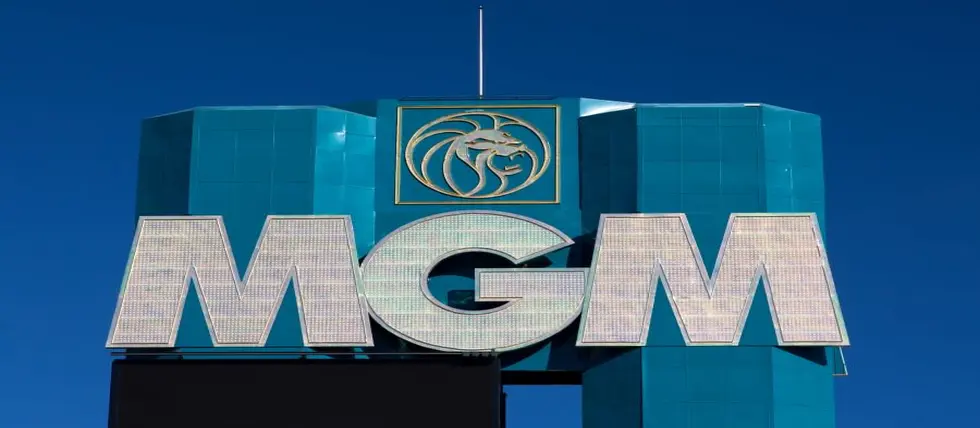MGM Resorts Cleared in $25M Gambling Addiction Case
MGM Resorts International has been cleared of liability in a federal lawsuit brought by a New Jersey resident who claimed to have lost nearly $25 million due to a gambling addiction. A three-judge panel of the U.S. Court of Appeals for the Third Circuit affirmed on Monday that MGM cannot be held responsible for encouraging the plaintiff, Sam A. Antar, to engage in high-stakes online gambling through its platforms.

Antar filed the lawsuit in 2022, accusing MGM Resorts and its subsidiaries of negligence and violations of the New Jersey Consumer Fraud Act. He alleged that the company's personal VIP hosts knowingly targeted him with offers and incentives, despite their awareness of his addiction to gambling.
Related: US Appeals Court to Hear Case Alleging BetMGM Enabled Gambling AddictAntar contended that MGM's actions led him to suffer substantial financial losses. However, the U.S. District Court previously dismissed his claims, prompting the appeal that was resolved this week.
In the opinion authored by Senior U.S. Circuit Judge Jane Richards Roth, the court determined that there is no legal basis to hold casinos accountable for the actions of problem gamblers. Roth emphasized that both New Jersey law and national precedent have consistently declined to impose a duty of care on gambling establishments to protect individuals suffering from compulsive gambling behavior.
The ruling highlighted the broad legal protections granted to casinos under the New Jersey Casino Control Act. That law aims to balance the interests of gambling patrons with the financial stability of the casino industry.
Roth, who was joined on the panel by Judges Stephanos Bibas and Cindy K. Chung, stated that the district court had properly dismissed Antar's negligence claim. She emphasized that New Jersey statutes and case law do not establish a duty requiring casinos to safeguard compulsive gamblers from the consequences of their own behavior.
Antar's legal representative, attorney Matthew Litt, argued during the appeal that MGM's VIP hosts functioned like aggressive salespeople, actively enticing Antar to continue gambling with knowledge of his addiction. Litt compared their conduct to selling a dangerous product to a vulnerable consumer. However, the panel found no supporting legal precedent to sustain this theory.
More Business News
 Business
Business
Ontario Lottery and Gaming Introduces Online Slot Developed for the Seeing-Impaired
Jun 06, 2025 Business
Business
Betsson Rejects Dutch iGaming Market Return amid Regulatory, Government Challenges
Jun 05, 2025No Consumer Fraud Act Violations
The court also rejected Antar's claim under the New Jersey Consumer Fraud Act. Although Antar alleged that MGM engaged in deceptive and unconscionable business practices by sending him dozens of gambling solicitations, the judges found insufficient evidence of unlawful conduct.
According to the court, Antar failed to demonstrate how the communications from VIP hosts were misleading in nature. The judges noted that Antar clearly understood the nature of the offers he received, including bonuses, deposit matches, and other promotional incentives.
Between June 2019 and January 2020, Antar reportedly received more than 1,800 text messages from his two designated VIP hosts at MGM. During this period, he wagered over $24 million on more than 100,000 online bets using MGM platforms such as BetMGM and Borgata Online. Despite the high volume of communication, the court concluded that Antar did not provide specific examples showing that the messages were deceptive or unlawful.
The panel further found that Antar had not established an ascertainable financial loss linked to any alleged misconduct. Although Antar asserted that his gambling losses during this time constituted quantifiable damages, the court deemed it infeasible to determine what portion, if any, was directly caused by the actions of the VIP hosts.
He also suggested that the services provided by the casino were effectively worthless to a gambling addict, since such individuals are unlikely to stop gambling before losing all deposited funds. Roth dismissed this argument, stating that each wager delivered the exact service advertised — a chance to win in a gambling environment with no guarantee of success.
The ruling reinforces the legal position that casinos are not liable for the voluntary gambling activity of patrons, even in cases involving individuals who identify as addicts. The decision marks a significant legal victory for MGM Resorts, affirming its position under both state and federal law.
RELATED TOPICS: Business
Most Read
Must Read
 Interviews
Interviews
Sweepstakes Casinos: Thriving in an Ever-Changing Industry – Interview with Attorney Stephen C. Piepgrass
Feb 17, 2025 Interviews
Interviews





Review this New Post
Leave a Comment
User Comments
Comments for MGM Resorts Cleared in $25M Gambling Addiction Case